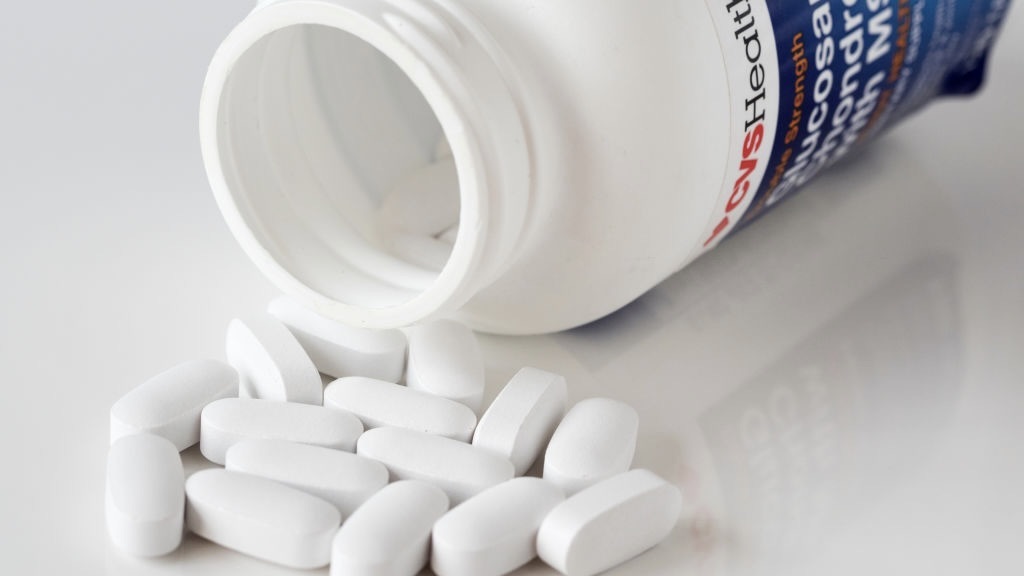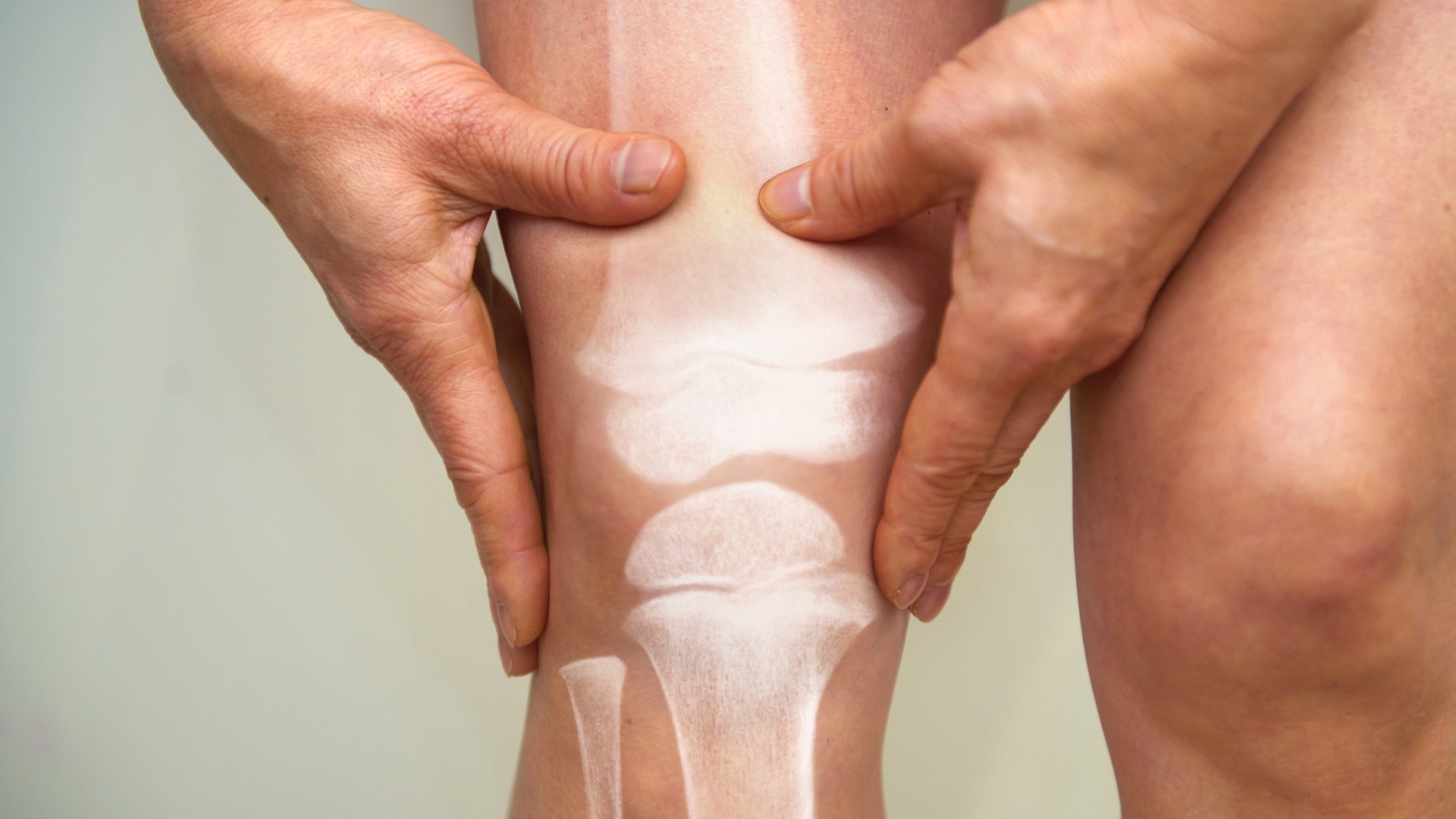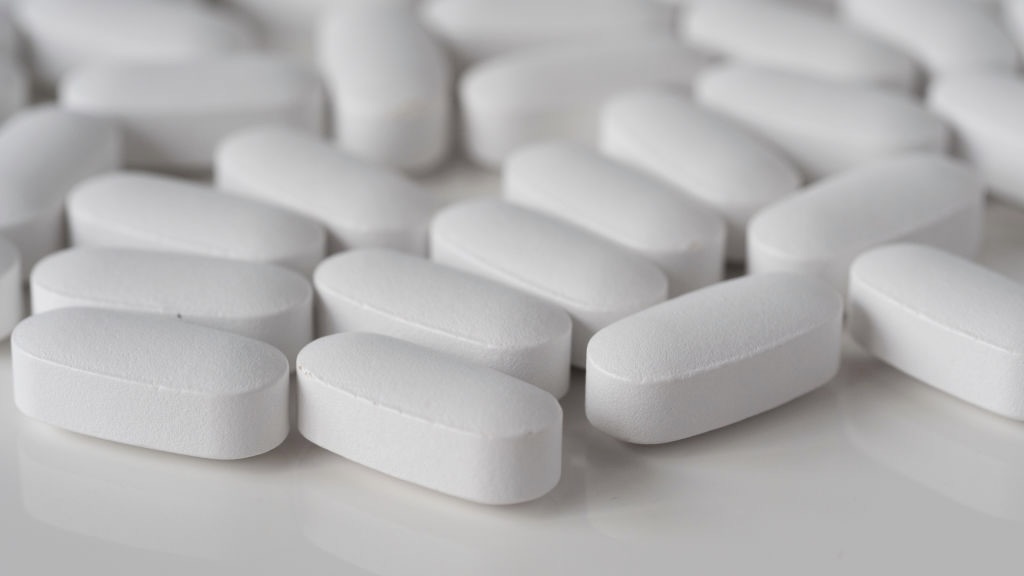Should runners and hikers take glucosamine supplements? We ask an expert
We consider the science to discover whether there are benefits to taking glucosamine supplements

All the latest inspiration, tips and guides to help you plan your next Advnture!
You are now subscribed
Your newsletter sign-up was successful
Take a look at the health supplement shelves in the supermarket, or browse health food shops and pharmacies, and you’ll see jars, tubs and packets of glucosamine supplements.
It's claimed that taking glucosamine will help to maintain and improve joints and, for this reason, it has long been favored by athletes. But do runners and hikers need to take glucosamine as a supplement? We speak to an expert and take a look at the evidence for and against.

What is glucosamine?
Glucosamine sulfate, or glucosamine for short, is a natural compound in the body that is found in cartilage, which is the tough tissue that cushions joints.
Glucosamine plays an important role in making glycosaminoglycans and glycoproteins, which are the building blocks of many parts of your joints, including ligaments, tendons, cartilage and synovial fluid.
In supplement form, glucosamine is harvested from shells of shellfish or made in a laboratory.

Why runners and hikers take glucosamine
Many runners and hikers complain about injuries and ailments, such as sore knees, ankles and hips. There is research that shows that exercise actually strengthens joints, but we’ll bet you know plenty of people who run and hike and who complain of sore knees, ankles, and hips. You might even be one of them.
For this reason, plenty of runners and hikers take glucosamine supplements. The belief is that taking the supplement will increase the cartilage and fluid that surrounds joints or help prevent the breakdown of these substances.
All the latest inspiration, tips and guides to help you plan your next Advnture!
There are natural sources of glucosamine, such as shrimp, lobster and crab shells, but even the keenest athlete isn't going to make those a significant part of their diet.
Are there benefits to taking glucosamine?
Glucosamine supplements – in the from of glucosamine sulfate and glucosamine hydrochloride – have been approved for the treatment of osteoarthritis in Europe to promote cartilage and joint health. The supplement is also sold over the counter in the US.
Various general health studies, such as Recommendations for the Management of Hip and Knee Osteoarthritis by Osteoarthritis Research Society International, claim that glucosamine is beneficial to the maintenance of joints through structure building and anti-inflammatory properties.
Another review study, Glucosamine Sulphate: an Umbrella Review of Health Outcomes published in 2020, looked at the benefits of glucosamine sulphate as a treatment for osteoarthritis. This study concluded that when administered as a prescription drug at at 1,500mg daily dosage, crystalline glucosamine sulphate can positively affect the cartilage structure, reduce pain, improve function and glucose metabolism.
However, the scientific evidence for studies connected with glucosamine supplementation have been questioned due to the quality of the clinical trials and the fact that, in some cases, a significant ratio of subjects failed to respond to the supplement.
It has been further suggested in a review study that other treatments might be more beneficial for joint management and pain relief, including weight loss, education and exercise.

Athletes and glucosamine
Chris Allsobrook, nutrition coach at OriGym, believes there are some benefits for runners in taking glucosamine supplements.
"Glucosamine’s primary advantage, and often the reason a supplement is recommended for runners, is its suggested ability to strengthen and reinforce cartilage and connective tissue around key joints," he says. "This includes the ankles, knees and elbows – all of which are crucial for healthy hiking and running form."
Allsobrook points to research that supports this theory. A 2019 study found improvements in the joint health of athletes, and pointed towards glucosamine’s wider application for more recreational runners. Furthermore, a qualitative study from 2015 showed a marked reduction in inflammation around the body’s key joints, which can occur after intense exercise.
Searching the academic papers further, we came across a few small studies that have looked at the benefit, or not, of glucosamine treatments for athletes. One controlled clinical trial from 2009 looked at soccer players and concluded that glucosamine supplements may exert a benefit to the joints of athletes, although the effect is transient and disappears after withdrawal of administration.
Further research from 2013 considered the effect of glucosamine administration on biomarkers of cartilage and bone metabolism in bicycle racers and came to the same conclusion as the soccer player study.
However, the scientific debate continues, with studies that suggest benefits and those that do not.
Anything else to know about glucosamine?
There have been some more recent studies that show another benefit of taking glucosamine supplement – and that is to lengthen average lifespans.
The qualitative study from 2015 mentioned above also indicated a possible correlation between regular consumption of glucosamine supplements and a reduced risk of lung and colorectal cancer.
Another study published in 2019 in the British Medical Journal suggests that glucosamine sulfate may lower risk of heart disease and stroke by at least 15%.
Additionally, a 2022 review published in Frontiers in Pharmacology suggested that the supplement may have beneficial effects in some chronic degenerative pathologies, such as diabetes, obesity and atherosclerosis.
To take glucosamine, or not?
It’s difficult to draw conclusions on the benefits of taking glucosamine as a supplement. It is suggested that for people with existing osteoarthritis there may well be some benefits, so long as it is taken in the right form and dosage.
In terms of a preventative measure for maintenance of joints, scientific studies are small and inconclusive. In fact, it is likely that continued exercise, good diet and weight management are better for maintaining joints than taking a supplement. But you may still be swayed to consider the supplement and, if so, there are some points to consider.
Glucosamine supplements
The vast majority of glucosamine supplements are available as glucosamine sulfate, glucosamine hydrochloride and glucosamine with chondroitin sulfate.
According to all of the research carried out to date, glucosamine sulfate or glucosamine and chondroitin produce the best results. The advice from the Arthritis Foundation is to take 1,500mg a day of glucosamine, and this can be in capsule, tablet, liquid or powder/drink form.
If used topically, then creams containing 30mg/gram of glucosamine sulfate, 50mg/gram of chondroitin sulfate, 140mg/gram of chondroitin sulfate, 32mg/gram of camphor, and 9mg/gram of peppermint oil can be applied to skin for up to eight weeks at a time.
Glucosamine can also be injected into your muscles, with the typical dose being 400mg twice a week for six weeks. This will be administered by a medical professional.
There are some recorded side affects such as nausea and vomiting, heartburn, abdominal pain, diarrhoea and constipation. Always ask your doctor before starting any new supplement plan.
- Best trail running shoes: tested for stability, grip, and protection on the trails

Fiona Russell is a widely published adventure journalist and blogger, better known as Fiona Outdoors. She is based in Scotland and is an all-round outdoors enthusiast with favorite activities including trail running, mountain walking, mountain biking, road cycling, triathlon and skiing (both downhill and backcountry). Aside from her own adventures, Fiona's biggest aim is to inspire others to enjoy getting outside and exploring, especially through her writing. She is also rarely seen without a running skort! Find out more at Fiona Outdoors.
